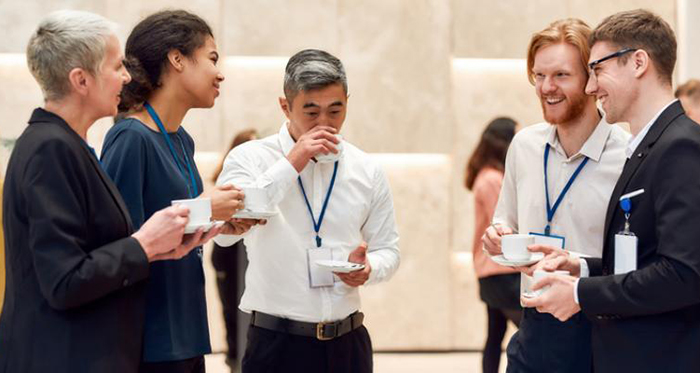ASM Global Survey Unveils What Younger Attendees Want from Business Events

In general, attendees go to conferences based on content, potential contacts, and convenience, not the attributes of the host convention center. However, the conference experience, which is strongly influenced by the venue, can be an important factor in an attendee’s decision to return to that event in the future.
So, what do attendees want and expect in a conference experience?
Convention center management company ASM Global recently explored that question, specifically looking at preferences of Millennial and Gen Z attendees. The growing under-40 audience, ASM says, represents 42 percent of meeting, convention, and conference attendees, with 18 percent being under 25.
In the first half of 2024, ASM surveyed event organizers, exhibitors, and attendees about their experiences at the 98 convention centers the firm manages. Several key findings stood out, including accommodating work-conference balance requirements and evolving food-and-beverage preferences.
Gotta Take This Call
Gone are the days when attendees’ out-of-office messages give them license to focus exclusively on conference content. The study showed that many attendees are looking for dedicated spaces to make or join conference calls and otherwise stay connected with their business without having to leave the conference venue. Facilities need to respond, ASM says, by providing work areas where people can be productive. For ASM, one answer is quiet work environments it calls “hush hubs.”
“We want to enable our attendees to maximize their time in hubs where they can catch up with home/office work and then jump back into the event,” says Dan Hoffend, ASM Global executive vice president, convention centers.
Food and More
According to the ASM researchers, younger generations are “now becoming responsible for the quick reinvention of conventions and meetings” because of their changing needs and values. For a significant number of under-40 survey respondents, the importance of immersive digital experiences and a focus on “effective social media leading up to and during events” emerged as a key, ASM reports. Also significant are a venue’s food and beverage offerings.

ASM drilled down on F&B issues, noting that younger attendees’ diet and lifestyle preferences now mirror those of attendees across all age groups, with 44 percent wanting more variety, including health-conscious, locally sourced, gluten-free, dairy-free, vegan, or vegetarian options.
ASM’s SAVOR food-and-beverage division points to other food-and-beverage trends gaining traction, including gluten-free pizza, birria tacos, hard seltzer, and zero-proof beer. “The data supports the changing expectations of the next-generation attendee,” says Shaun Beard, SAVOR executive vice president. “We’re developing and offering exciting spices and diverse flavors and ingredients like hot honey and tajin, featuring items such as hot chicken and vegetarian options like cauliflower wings.”
“We’re gaining an understanding of what attendees want out of their experiences and seeing that all the little things make the biggest difference,” says Hoffend. “We’re learning what foods and diets are highest in demand, how much courteous and attentive staff really matters, how important safety and security is to our guests, and more.”
ASM Global Chief Marketing Officer Alex Merchán sums up the company’s research findings this way: “The tide has turned. The younger generations are a driving force in the events industry; and with a new generation of influential players and decision-makers, it’s time to reimagine the industry around these evolving expectations.”
This article was originally published in our sister publication MeetingsNet.
Don’t miss any event-related news: Sign up for our weekly e-newsletter HERE, listen to our latest podcast HERE and engage with us on LinkedIn!


Add new comment